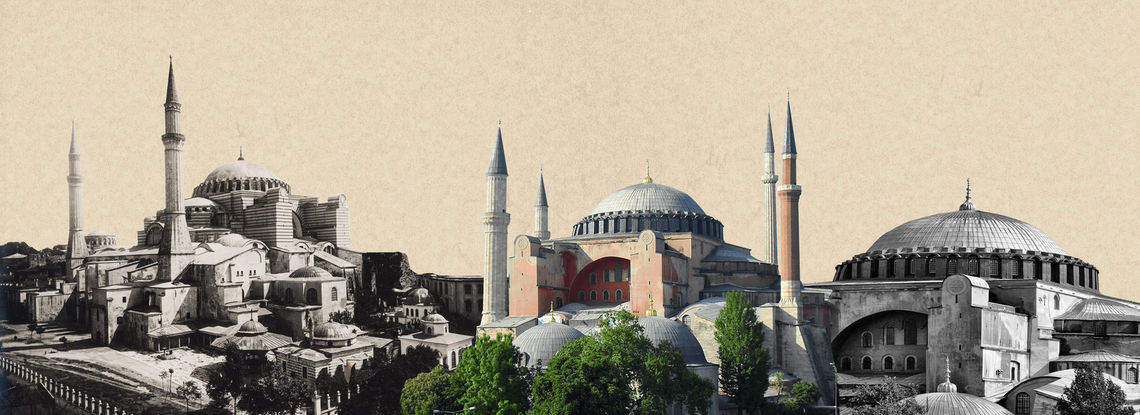
On 10 July, 2020, Turkey’s highest administrative court annulled the museum status of Istanbul’s most iconic building, the Hagia Sophia. This was followed by the decision of Turkish President Recep Tayyip Erdogan to convert the former cathedral into a mosque. The Hagia Sophia, a UNESCO World Heritage site, considered the pearl of Europe and the center of the Orthodox faith for ten centuries, later became a reminder of Ottoman conquest and the end of the Byzantine Empire, when Mehmed II conquered Constantinople in the 15th century and turned the marvellous church into a mosque. It remained as such until November 24, 1934, when Turkey’s Board of Minister’s passed a motion officially declaring the Hagia Sophia a museum and a symbol of religious solidarity.
On July 24, 2020, the Hagia Sophia welcomed its first Muslim worshippers in almost a century. To prepare for prayers, a turquoise carpet was laid on the floor and drapes covered Christian relics. President Erdogan was seen joining worshippers as they lined up to enter for Friday prayers.
The latest decision sparked outrage in the Orthodox world; however, supporters of Mustafa Kemal Ataturk, the founder of the modern Turkish Republic, are also taking offense. Since the establishment of the Turkish Republic in 1923, the two wings of Turkish politics - nationalism and Islamism - have been in constant struggle. The nationalists have been able to suppress Islamism for over 80 years, often with the help of the army, but a major shift occurred in 2002, when Erdogan’s Justice and Development Party (AKP) came to power, taking 363 of the 550 seats in Parliament (despite only receiving 34% of the votes[1]).
Erdogan aspires to become a new Ataturk and has targeted his six principles, which are famous as the six arrows enshrined in the Turkish Constitution in 1937. Now, Erdogan is trying to compose his own doctrine of the Turkish state, which lies in almost complete contradiction to the six arrows, presented below:
Republicanism
Kemal had intended to replace the Ottoman monarchy with the rule of law and civic virtue when he abolished the Caliphate. In contrast to Kemal's outlined Republicanism, and its form of a parliamentary republic, Erdogan oversaw constitutional changes through referendums that converted the state into a presidential republic, strengthening and enhancing his own personal power.
Nationalism
The primary goal of this doctrine was to build a cohesive nation-state out of the remains of the multinational and multi-religious Ottoman empire, where citizenship was the primary loyalty. In Kemal’s ideal state, minority groups should express their devotion towards the title “Turkish nation,” the identification of ethnicity with citizenship. This concept is epitomized by the student oath, which begins with “How happy is the one who says ‘I am a Turk.’” Nationalism is considered the main pillar of Kemalism.
Ataturk considered nationalism from the French point of view, without racial and national discrimination, and conceptually different from the nationalism of the Young Turks, which focused on Pan-Turkism. The term “millet-chilik” (“millet”- from the word “nation”) was replaced with the word "Turk-chilik" ("Turkism"), referring to all those who lived within the borders of the Turkish Republic.
Although it was conceptually progressive, in reality, things played out quite differently for Turkey’s ethnic minorities. Discrimination remained, even to the point of pressuring Armenians to change their names so as not to be easily identified, while the plunder of assets during the Armenian Genocide was consolidated.
During Erdogan's reign, racial intolerance flourished. In 2014, he spoke about others “insulting” him in a TV interview: “I was called a Georgian. Pardon me for saying this, but they said even uglier things: They called me an Armenian!” Erdogan returned Turkey to the Pan-Turkic ideology of the Ittihadists. It was during his rule that the Turkic Council was founded in 2009, providing a union with Turkic-speaking countries in Central Asia and Azerbaijan. In the early 20th century, this Pan-Turkic vision (sometimes called Pan-Turanism) was a factor in the Armenian Genocide, as Armenians were wedged in between the Turks in Asia Minor and their compatriots to the east.
Also, after a detente with the Kurds, military actions against that community, nominally pointed at the Kurdish Workers’ Party (PKK), restarted in 2015. Turkey regularly bombs Kurdish positions situated in Syria and Iraq.
Etatism or Statism
This principle outlines that the state should play a key regulatory role in the development of the Turkish economy. Though post-revolutionary Turkey was mainly agrarian, Ataturk aspired to see a modern, industrial Turkey. According to this doctrine, the state should control important infrastructure in the country, including, for example, the iron and steel industries. In this area, it seems Erdogan’s view does not conflict with Kemalism.
Populism
In this context, populism is the principle of abolishing social and class inequalities in the state, in service of achieving Ataturk’s ideal of national unity. It is guaranteed by the Turkish parliament - the Grand National Assembly, or Meclisi - where the representatives of the people should have a voice.
In fact, the constitutional changes made in 2017 compromised this principle. This package of controversial constitutional reforms replaced the premier-presidential system of government with a presidential system, what its advocates called a “Turkish style presidency”. With the adoption of the new Constitution, Erdogan has the opportunity to remain in power until 2029, overshadowing the parliament with a potential 27-year reign by one charismatic figure.
But the two most important principles that Erdogan is peeling back are the last two: laicism and reformism (or revolutionism).
Laicism
In 1928, the provision recognizing Islam as Turkey’s state religion was removed from the Turkish Constitution. In the 1937 Constitution, secularism was enshrined as a separate article, creating a clear division between the state and religion. One of Kemal's first steps was to cancel Sharia Law. Religious education was then banned, and all schools were placed under the jurisdiction of the Ministry of Education. In modern Turkey, that principle was expressed by the banning of political parties (for violating the Constitution) that have explicit Islamic views.
However, the ruling AKP in Turkey has a religious (Islamic) orientation and that principle is losing ground in Turkey. Many leading AKP women, including Erdogan’s wife, wear the hijab religious headscarf, which used to be forbidden. This way, the AKP emphasizes the importance of religion in their ideology.
Reformism or Revolutionism
The fundamental idea behind this principle is to achieve a modern society through revolutionary changes and to prevent remission to old habits. The Turkish military was the guardian of modernism and laicism. In the history of the Turkish Republic, the Turkish army executed four coup d’états in 1960, 1971, 1980 and 1997. Every time any religious party came to the fore, the army changed the power by military means.
After the AKP came to power in 2002, the military attempted a coup d’état in 2003, but failed. The plan was named “Balyoz” (Sledgehammer) and was developed in 2002-2003. It was approved by 162 officers of the armed forces, including 29 generals. It involved declaring a state of emergency in the country to create an atmosphere of chaos and violence, preparing the ground for a coup d'état. But Erdogan not only prevented the attempt, he also neutralized the military as the guardians of laicism. It was followed by a large number of military arrests.
Another attempted coup d’état, involving high-ranking Turkish military officers, was prevented on July 15, 2016. Erdogan had to hide until his supporters were able to restore Erdogan’s positions. It was also followed by thousands of arrests, including school teachers, judges and journalists, which was fiercely criticized by the international community.
A New Sultan
The current President of Turkey aspires to a transformational role on par with Ataturk. He has gradually erased the portrait of Ataturk from state symbols. Notably, there are now scandals reported in the media where Ataturk is blamed for having an illegal love affair with his adopted daughters.
Thus, Erdogan and his party have prepared a fertile ground to get rid of Kemalism’s doctrines. They envisage the future of Turkey on Islamic pillars. Moreover, another one of Ataturk’s main doctrines is also violated: “peace at home, peace in the world.” According to that doctrine, Turkey should avoid participating in conflicts outside Turkish borders, with the exception of two cases in Northern Cyprus and the city Mosul in Iraq, where Turkey has undertaken the obligation to protect the Turkish people living there. That doctrine has also been violated by Erdogan as he continues military operations in Iraq and Syria, mostly targeting the Kurdish population on its border.
----------------
1. 45% of all votes cast in that election went to parties that did not meet Turkey’s notoriously high 10% threshold, and were effectively disregarded.
also read
Is the Study of the Middle Ages Possible in Turkey Today?
By Paul Mirabile
The essay attempts to offer several historical and pedagogical responses to the genocide of the Armenian people by suggesting a program on the study of the Middle Ages of Turkey, one that would entail the study of the three mediaeval epic tales that were forged during the Middle Ages on Anatolian soil.
Turkey, the Kurds and the Generational Trauma of the Armenians
By Maria Titizian
When Turkey launched its military offensive in northeastern Syria, it triggered something in the minds and hearts and memories of many Armenians.
Between Armenia and Mount Ararat Stands a Double Layer Fence
By Justin Tomczyk
Justin Tomczyk traces the history of the Armenian-Turkish border spanning from Armenia’s incorporation into the USSR to the present day, touching upon the Zurich Protocols and reflecting on the viability of a future normalization process.
Six Lessons From the Failed Armenian-Turkish Rapprochement
By Vahram Ter-Matevosyan
Armenia’s president signed a decree on March 1 announcing the controversial Armenian-Turkish protocols null and void. Now that the the protocols are a thing of the past, Vahram Ter-Matevosyan writes that the time has come to draw some lessons from an initiative that was long dead.
The Limits of Turkish-Azerbaijani Policies Against Armenia
By Vahram Ter-Matevosyan
The flare-up of violence on the Armenia-Azerbaijan state border triggered a chain of reactions in Azerbaijan and Turkey. Historian Vahram Ter-Matevosyan examines the domestic situation in Azerbaijan and the implications of Turkish involvement.


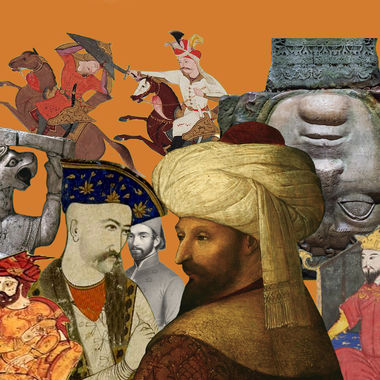

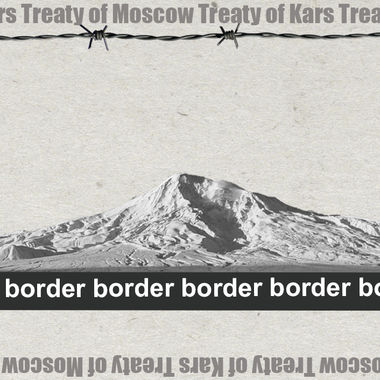
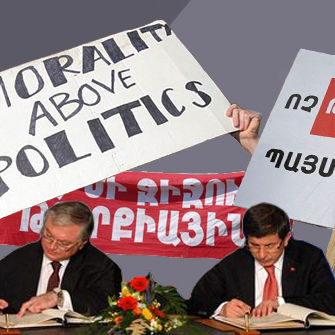
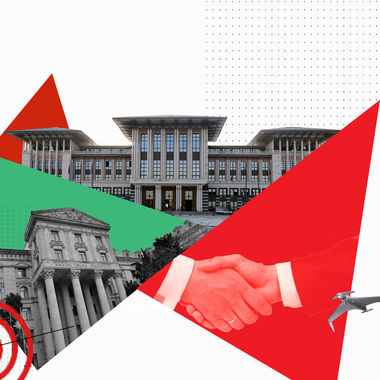


EVN Report welcomes comments that contribute to a healthy discussion and spur an informed debate. All comments will be moderated, thereby any post that includes hate speech, profanity or personal attacks will not be published.